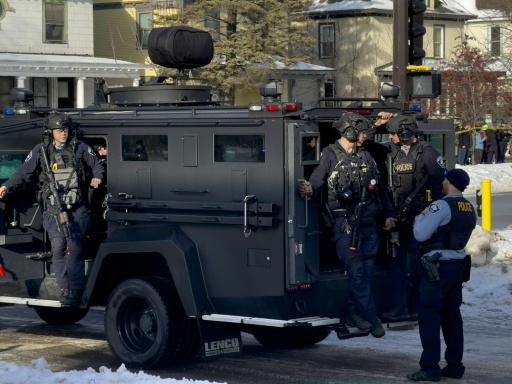DRCongo
US slaps sanctions on Rwanda military over DR Congo 'violation'
- The United States said it was imposing sanctions against the Rwanda Defence Force (RDF) and four officers including the army chief of staff, Vincent Nyakarundi, saying they were critical to M23 gains.
- The United States said Monday it was imposing sanctions on Rwanda's military, taking action against a longtime partner which it accused of violating a peace agreement in the Democratic Republic of Congo.
- The United States said it was imposing sanctions against the Rwanda Defence Force (RDF) and four officers including the army chief of staff, Vincent Nyakarundi, saying they were critical to M23 gains.
The United States said Monday it was imposing sanctions on Rwanda's military, taking action against a longtime partner which it accused of violating a peace agreement in the Democratic Republic of Congo.
The mineral-rich east of DRC has seen decades of conflict, but violence dramatically flared last year when the Rwandan-backed M23 group made huge gains, capturing strategic mines and towns and displacing thousands.
President Donald Trump in December brought together the leaders of Rwanda and the DRC to sign a peace deal, predicting a "great miracle".
But just days afterwards, the State Department noted, the M23 captured the key Congolese city of Uvira.
The United States said it was imposing sanctions against the Rwanda Defence Force (RDF) and four officers including the army chief of staff, Vincent Nyakarundi, saying they were critical to M23 gains.
"M23, a US- and UN-sanctioned entity, is responsible for horrific human rights abuses, including summary executions and violence against civilians, including women and children," State Department spokesman Tommy Pigott said.
"The continued backing from the RDF and its senior leadership has enabled M23 to capture DRC sovereign territory and continue these grave abuses," he said in a statement.
"As President Trump has made clear, the United States is prepared to use all available tools to ensure the DRC and Rwanda deliver on the promises of this historic agreement."
Trump had earlier sounded positive about working with Rwandan President Paul Kagame, a veteran leader who has also been willing to take in migrants deported from the United States, a top political goal for Trump.
The December peace deal had been hailed by Trump as a way to secure critical minerals from the DRC.
The sanctions will block any assets that the RDF or the four officers hold in the United States and criminalise any financial transactions with them.
In a separate statement, Secretary of the Treasury Scott Bessent said the US expected "the immediate withdrawal of Rwanda Defence Force troops, weapons, and equipment".
It noted that the RDF had "provided direct operational support to M23 and its affiliates", including advanced weaponry such as GPS jamming systems, air defence equipment and drones.
"Thousands of RDF troops are deployed across eastern DRC, where they actively engage in combat operations and facilitate M23's control of territory," the statement added.
'Misrepresent reality'
Rwanda said the US sanctions were "unjustly targeting only one party", and insisted in a statement late Monday that such a move "misrepresent the reality and distort the facts of the conflict".
It said that "consistent and indiscriminate drone attacks and ground offensives constitute clear violations of ceasefire agreements by the DRC".
Rwanda has insisted it is only involved in the eastern DRC to help protect against an enemy militia formed from the remnants of those who committed the 1994 Rwandan genocide of the Tutsis, denying direct military involvement despite considerable evidence from United Nations observers and others.
In turn, it has demanded that the Kinshasa government clamp down on Hutu militants from the genocide, who targeted ethnic Tutsis and moderate Hutus.
Outmatched on the ground by the better-equipped M23 and Rwandan troops, Kinshasa's forces have relied in part on US pressure on Kigali to stabilise the front line, regional specialists and security sources told AFP.
sct-rbu/sbk






































